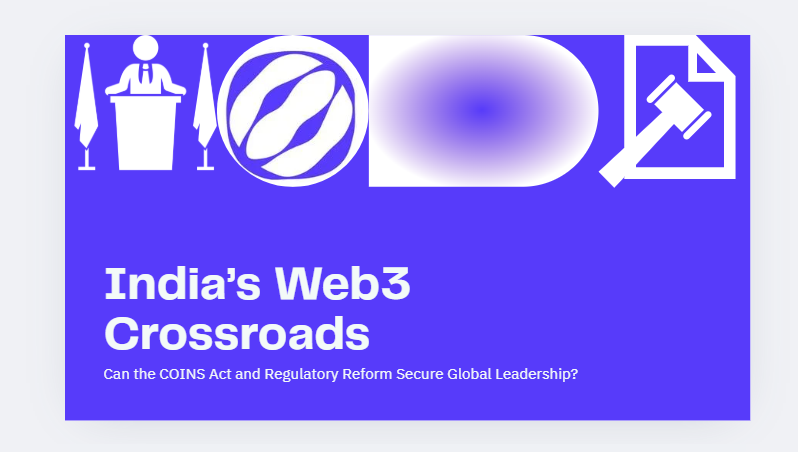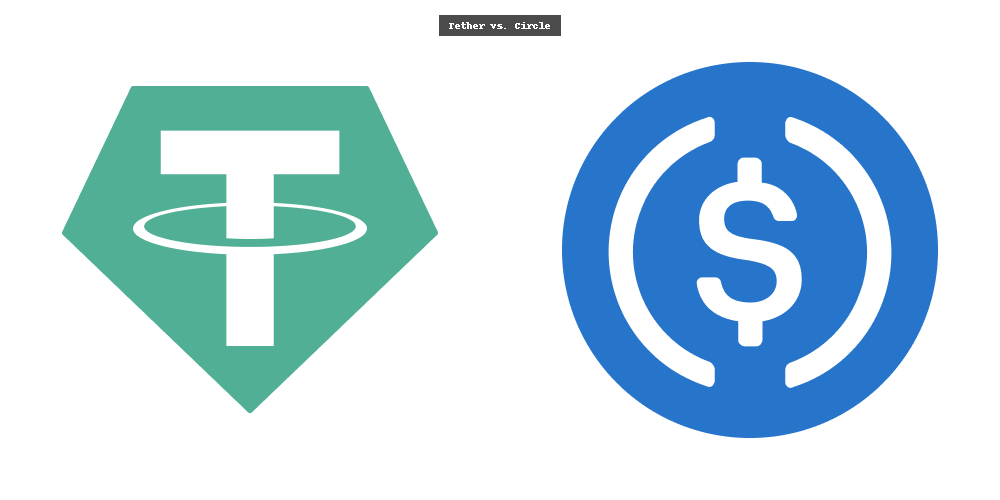India’s Web3 Crossroads: Can the COINS Act and Regulatory Reform Secure Global Leadership?

Introduction
India stands at a decisive moment in the evolution of Web3. With over 17% of the world’s new blockchain developers, more than 1,200 Web3 startups, and $564 million in funding in 2024 alone, the country possesses both the talent and the infrastructure to lead globally. However, its regulatory stance remains fragmented, creating both a challenge and an opportunity. The recently proposed COINS Act could serve as a blueprint that bridges innovation with oversight.
The COINS Act: A Model Blueprint for Web3 Regulation
The COINS Act (Crypto-systems Oversight, Innovation, and Strategy Act) is a non-binding model law jointly introduced by Hashed Emergent and policy think tank Black Dot. Although it is not yet legislation, it outlines a comprehensive framework to clarify India’s crypto rules.
Key Proposals:
- Digital-Native Rights Recognition
- Rights to self-custody of assets.
- Financial privacy protections.
- Freedom for open blockchain protocols to operate without excessive restriction.
- Creation of CARA (Crypto Assets Regulatory Authority)
- Specialized regulator to oversee India-facing crypto services.
- Distinction between centralized platforms (strict oversight) and decentralized protocols (lighter rules).
- Tiered Regulation
- Centralized Exchanges: Mandatory licensing and compliance.
- Non-Custodial Protocols: Reduced disclosure requirements.
- Permissionless Protocols: Full exemption from most regulations.
- ICO Safe Harbor & Strategic Bitcoin Reserve
- Safe harbor provisions to protect legitimate Indian token projects.
- A proposed Strategic Bitcoin Reserve to enhance national crypto sovereignty.
Polygon Labs’ Aishwary Gupta praised the COINS Act as a forward-thinking approach aligned with global best practices, balancing innovation with consumer protection.
Government Position: Still in Transition
While the COINS Act has industry support, the Government of India has yet to commit to comprehensive regulation. A long-awaited discussion paper, expected in mid-2025, has not been formally published.
- Finance Ministry: Recently stated that there are no immediate plans to regulate crypto, a position that frustrates industry leaders.
- Reserve Bank of India (RBI): Maintains a cautious stance, citing concerns about monetary stability and systemic risk.
Taxation Challenges
The current tax structure has pushed much of India’s crypto activity offshore:
- 30% capital gains tax on crypto profits.
- 1% TDS (Tax Deducted at Source) on every transaction.
- Industry advocates are lobbying for a reduction of TDS to 0.1% to encourage domestic participation while retaining traceability.
Over 90% of Indian crypto volumes have reportedly moved abroad due to this tax burden.
Strategic Opportunity vs. Global Competition
India’s strengths in Web3 are undeniable:
- Talent: 17% of new global blockchain developers are from India.
- Ecosystem: Over 1,200 active startups.
- Funding: $564M raised in 2024 for Web3 projects.
However, other countries are racing ahead. Pakistan, the UAE, Bhutan, and the U.S. are aggressively positioning blockchain as a geopolitical asset, integrating it into national strategies. Without decisive action, India risks a brain drain of developers and entrepreneurs.
What’s at Stake
If India adopts a progressive regulatory framework such as the COINS Act’s principles, it could:
- Create up to 800,000 jobs by 2030 in blockchain and allied industries.
- Establish itself as a global innovation hub for decentralized finance (DeFi), NFTs, and blockchain infrastructure.
- Attract billions in foreign investment while protecting domestic investors.
Conversely, continued indecision could see India’s Web3 talent and capital migrate to more crypto-friendly jurisdictions.
Conclusion
India’s Web3 future hinges on a delicate balance, protecting its financial system while fostering an environment where blockchain innovation can thrive. The COINS Act offers a strong starting point, but without political will and tax reform, the country may miss its chance to lead the global Web3 revolution. The next 12–18 months will be pivotal in determining whether India becomes a Web3 powerhouse or a follower in the blockchain era.



Comments ()